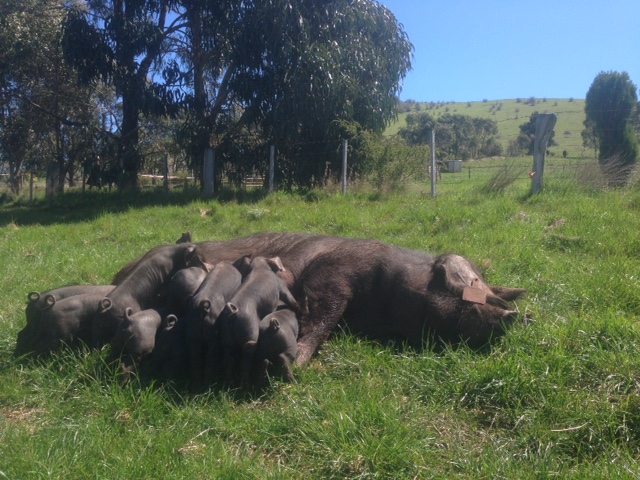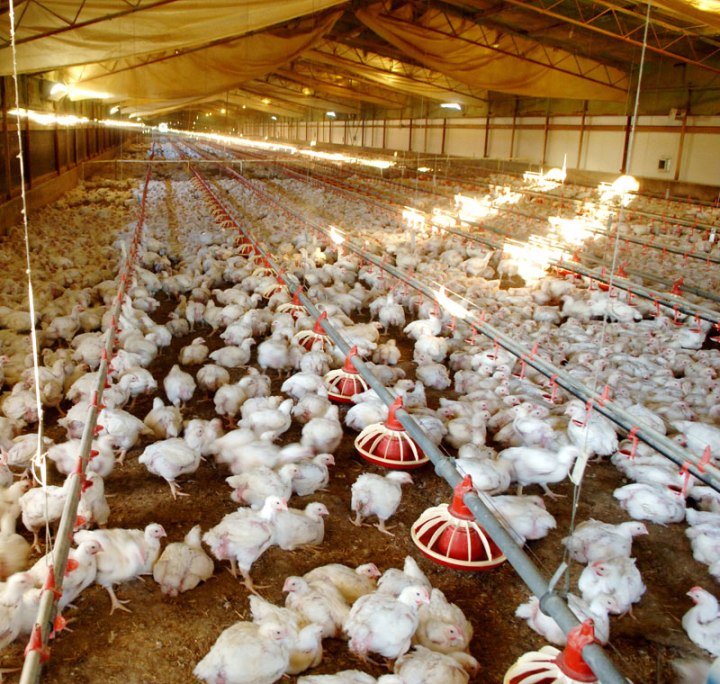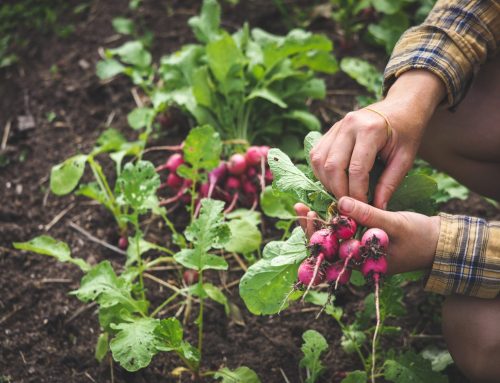Ant Wilson wrote this blogpost about the hostile planning and regulation environment Victorian farmers are dealing with at the moment. Ant is a future farmer who has spent the past year volunteering on a number of different small farms to learn the ropes, with great hope of getting into farming himself.

Small scale pastured pig and poultry farmers in Victoria are at the centre of a potentially devastating shit-storm this week with the anticompetitive actions of one of two remaining private poultry abattoirs and the release of the draft changes to planning regulations.
Many small scale pig and poultry farmers in Victoria are the leaders in sustainable agriculture and often aim not only to produce ethical meat sustainably, but to produce it in a way that regenerates the environment. This style of animal husbandry is exemplified by a small scale, low stocking density, mobile infrastructure, diversified production, localised markets, ethical treatment of animals, nutrient cycling and maintenance of pasture year round. The meat produced in these systems has a high nutrition value, is devoid of questionable chemicals, and has unique terroir subtleties.

These values are in stark contrast to intensive animal production that bows at the altars of mass production, standardisation, sterility, centralisation and export. These systems are hidden from public scrutiny for good reason – they drain resources, impact heavily on the environment, they stink and are an eyesore. These large scale permanent shed based systems reduce the lives of animals to ‘production units’ and lament the effects on revenue when they die. These systems attempt to play god by replacing the intricacies of pastured meat production with a cocktail of GM feed, mineral supplements and antibiotics. (For more info on the pork you buy in supermarkets click here).


In a move that seems to suggest corruption and collusion between state government and corporate ag, planning regulations have been drafted that further enable intensive systems and continue to sink small scale farmers in a quagmire of bureaucracy. The changes are detailed but in simple terms they will:
- Allow an intensive poultry farm to open a new range for up to 150,000 chickens without any of the restrictions placed on a farmer with 500 chickens.
- Treat a pastured producer with 500 birds the same as an intensive producer with 500,000 birds in sheds.
- Enforce 100m buffer zones from neighbouring dwellings on pastured poultry farmers with up to 450 birds and pastured pig farmers with up to about 80 pigs – rendering it actually impossible for some farmers with land that may be less than 200m wide. (To give some perspective, a minimum of 600 birds and 100pigs is usually required for viable small scale systems).
- Allow an intensive cattle feedlot with less than 1000 cattle to be built with no buffer zone and no permits.
Basically, the Planning for Sustainable Animal Industries (PSAI) appears to have largely ignored the recommendations of the Animal Industry Advisory Commission (AIAC). Even if the PSAI had payed attention to the AIAC, there was zero representation for the small scale pig and poultry farming community. As a prominent ethical pig farmer and president of Australian Food Sovereignty Alliance (AFSA), which is fast becoming the voice of regenerative farmers (since the Victorian Farmers Federation(VFF) is showing its own signs of vested interests and corruption), Tammi Jonas nominated herself to be part of the Implementation Reference Group but was rejected.
To rub salt in the wounds, private abattoir Golden Poultry has recently shut its doors (the day before processing day) to small scale producers. This leaves ONLY ONE option for these farmers across Victoria – which means many famers will be hanging on by a thread while others will be forced to end their efforts to regenerate the Australian landscape through ethical animal husbandry. Private abattoirs have become nigh impossible to operate in Australia (and in other Westernised countries) as a result of centralised corporatised factory farming, and the state government continues to support these systems over the healthy resilient localised alternative. There is a string of other negative effects of factory farming but thats another blog post!
If you’d like to support small scale farmers (like I hope to be one day) and the production of wholesome unadulterated food, become a member of AFSA and please email Jaala Pulford (Minister of agriculture) and Richard Wynn (Minister for Planning) to ask why small scale regenerative farmers are not being represented and why the new regulations are suppressing them and supporting corporate ag. Is it because they see ‘sustainability’ through an economic lens? Their details are included below.
jaala.pulford@parliament.vic.gov.au
richard.wynne@parliament.vic.gov.au
Instagram – #thisisnotintensive #pasturedpoultry #pasturedpigs #regenerativeag #ethicalpork #ethicalpoultry
(This post was reposted with permission from Ant from his blog “Future Farmer Ant”)


